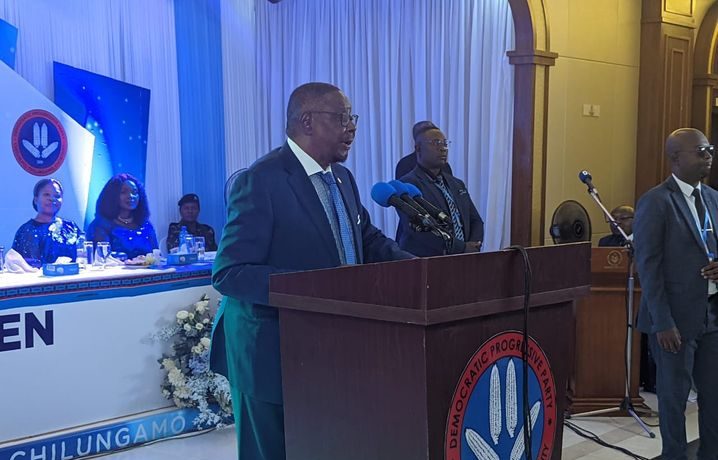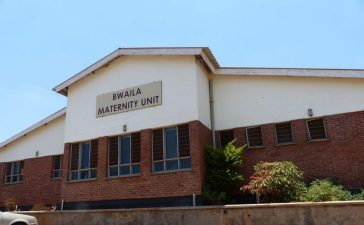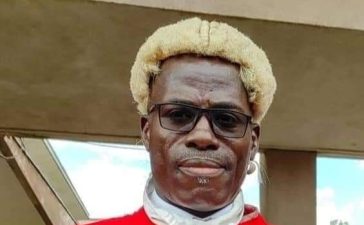The Democratic Progressive Party (DPP), under the leadership of its former president, Arthur Peter Mutharika (APM), held yet another Blue Night fundraising event yesterday in Blantyre at the Golden Peacock.
While these Blue Night events are not new to the party, what stood out this time was the glaring absence of government parastatals and other public institutions that once played a crucial role in financing the party’s events.
For years, these entities — including water boards and various government departments — were coerced into contributing to the DPP’s coffers under duress. In some cases, top officials in these institutions were installed by the DPP and pressured to donate government money to the party, with the threat of losing their jobs if they refused. This, according to critics, amounted to nothing short of abuse of office and theft of public funds.
The 2017 Scandal: Looting and Non Separation Between State Resources and Party Business
For those who might view these allegations as mere accusations, the 2017 Blue Night fundraiser serves as a case in point.
On 29th July 2017, the DPP held a Blue Night event at the State House (also known as Kamuzu Palace) in Lilongwe — a clear violation of separating party activities from state institutions. During the event, the DPP reportedly received a whopping K13.5 million from government-owned institutions, including Blantyre Water Board, Lilongwe Water Board, Mzuzu City Council, and Lilongwe City Council.
The money was sourced from public entities that, under normal circumstances, should have been using their resources to serve the public, not to finance a political party.
However, some institutions, such as the Mzuzu Water Board, refused to submit the pledged amounts following public condemnation from civil society organizations (CSOs) that called out the misuse of public funds for partisan purposes.
Legal Fallout: Court Orders DPP to Refund the Looted Funds
The scandal did not end there as some Civil Society Organizations led by Youth and Society (YAS) mounted a legal battle against the DPP. On 13th March 2018, the High Court sitting in Zomba, presided over by Justice Zione Ntaba, ruled that the DPP should refund the K13.5 million to the government. The court ordered that the money be repaid within 90 days.
However, instead of complying with the court’s ruling, the DPP appealed the judgment and sought an interim relief to stay the court’s order. This request was rejected by the Supreme Court on 6th February 2019, which upheld the High Court ruling, reaffirming that the DPP had to repay the funds.
The DPP’s Flouting of the Law: Contempt of Court
By March 2019, when the 90 days had long-expired, the DPP had still not repaid a cent. Then a ruling party, in an unprecedented display of defiance, refused to comply with the court order. This refusal to refund the looted money, despite the clear judgment, was nothing short of contempt of court. The DPP continued to drag its feet, ultimately neglecting its legal obligation to pay back the K13.5 million in full.
Finally, in November 2024, barely last week as the DPP prepared for another Blue Night event, the party made a token payment of K3.5 million — an amount far below the court-mandated sum. However, this partial payment does not absolve the party from the long-standing contempt of the court order.
This was an attempt to save face amidst the public outcry surrounding the party’s reputation for misusing public funds through these fundraising events. The money was channeled through a CSO lawyer who had taken the DPP to court over the fundraising scandal.
There have been no reports indicating that the CSOs (Youth and Society, YAS, and Center for the Development of the People, CEDEP) have transferred this money back into the Government Treasury, as they were directed to do.
A Party Above the Law
This whole episode underscores a deeper issue about the DPP’s culture of impunity — one that extends far beyond this particular fundraising scandal. If a political party, while in opposition, can blatantly disregard court orders and display such open disrespect for the rule of law, one can only imagine the levels of impunity it would engage in when in power.
Despite being ordered by the court to pay back K13.5 million within a stipulated period, the DPP demonstrated that it was untouchable and immune to legal repercussions. This continues to reflect the party’s broader tendency to operate above the law — a tendency that became more pronounced during the reign of former President Mutharika.
The Legacy of Mutharika’s Leadership: A Call for Accountability
For Arthur Peter Mutharika, the man behind the DPP’s leadership during these events, this is the legacy he seems to stand by: a leadership marked by corruption, abuse of office, and disregard for the rule of law. This is the same leadership he now encourages Malawians to look back to and re-install.
The events surrounding the Blue Night fundraiser, the court order, and the party’s defiant stance against paying the looted funds back serve as a clear warning. The DPP’s actions show that, while the party may now be in opposition, it is still unaccountable, and the culture of impunity that flourished during Mutharika’s rule remains embedded in the party’s operations.
As Malawians reflect on the leadership they want to entrust with power in 2025, these past actions by the DPP should be a major consideration. Is this the kind of leadership they want to return to? One that has demonstrated a blatant disregard for the law and is willing to exploit state institutions for political gain? The judgment is in the hands of the people.













